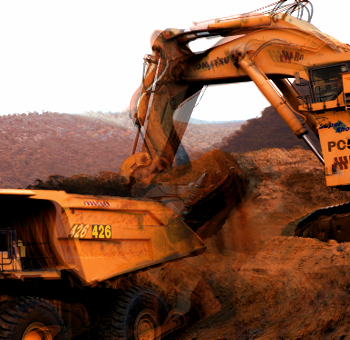Mining views mismatch contribution
 A veteran historian says mining remains central to the Australian economy, despite its unpopularity.
A veteran historian says mining remains central to the Australian economy, despite its unpopularity.
Conservative historian Geoffrey Blainey says Australia’s mining and natural resources sector will remain critical to the economy for at least the next decade, but noted that its image problem may never have been worse.
According to a recent survey by the Lowy Institute, over half of all Australians support reducing coal exports, introducing an emissions trading scheme or carbon tax and banning new coal mines.
Urban residents appear more likely to support a ban on new coal mines, with 66 per cent of urbanite Australians supporting such a ban, compared with 57 per cent of people living in regional and rural areas, the survey found.
But despite a sharp slowing in world economic growth last year, Australia’s resource and energy export earnings are forecast to top $459 billion this financial year, according to the Department of Industry, Science and Resources.
This would follow a 31 per cent gain in resource exports last financial year, led by coal, iron ore, gold and aluminium.
But Professor Blainey, a former Australian studies professor at Harvard University, says efforts should be made to promote mining’s vital contribution to the strength of the domestic economy.
“One long-term problem for mining is that it is electorally weak,” Professor Blainey told reporters this week.
“Our minerals dwarf education as an export earner, though the university publicists sometimes spread a contrary message.
“Public opinion is more hostile or indifferent towards mining than in any other decade in our history.
“The very recent loud boom in mineral prices might end soon, but minerals - old and new - will probably remain crucial to Australia’s standard of living at least in the next dozen years.”
The peak mining lobby agrees, with Minerals Council of Australia chief executive Tania Constable saying the resources sector is vital for government spending on essential services during difficult times for families.
“This contribution cannot be taken for granted and governments must ensure that policies work to maintain international competitiveness, and to enable Australia to secure our share of the additional US$100 billion [AU$143 billion] of global mining investment needed every year to achieve net zero emissions by 2050,” she said.







 Print
Print